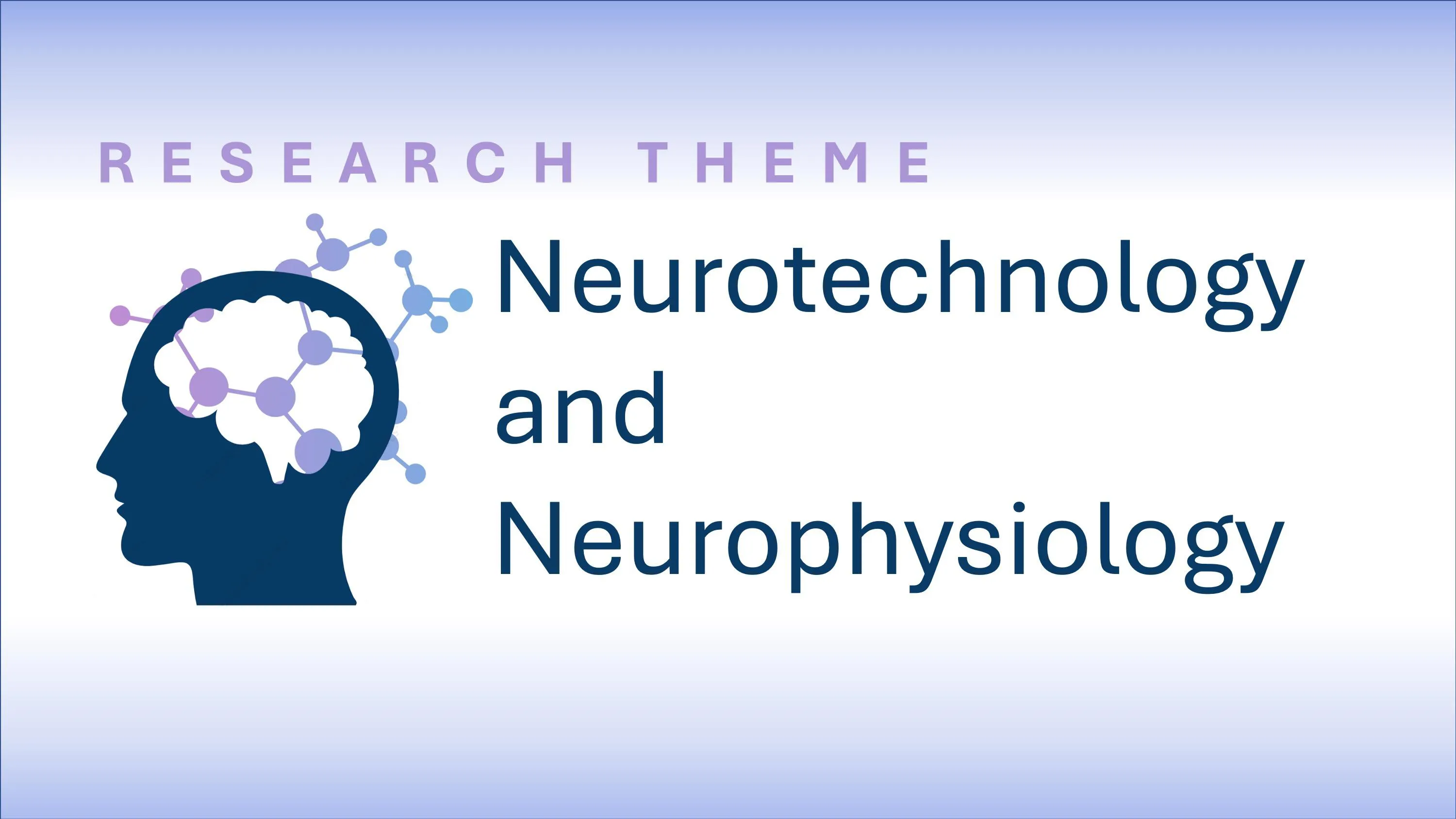Neurotechnology and Neurophysiology
Aims
This is the Neurotechnology and Neurophysiology Theme of the IoPPN Neuropsychiatry Research & Education Group.
Neurotechnology research and clinical activity within the neuropsychiatry group broadly falls within the umbrella of Maudsley Neurotechnology (MNT), although we also members of the wider KCL Neuromodulation group. MNT is a combined SLaM / KCL venture and now has a dedicated building on the Denmark Hill site. This is a clinical and academic centre for evaluating and delivering evidence-based neurotechnology treatments for mental health disorders.
Many patients with mental health disorders only partially respond to any form of psychotherapeutic or pharmacological treatment. Neurotechnological treatments represent alternative nonpharmacological treatment strategies. They may exert their effects through direct control of the aberrant neural activity underpinning the diseases (neuromodulation) or by using brain-computer interface technology.
MNT aims to:
- deliver neurotechnology treatments to patients
- advance neurotechnology through research,development and evaluation
- provide education and training in neurotechnology and facilitate knowledge sharing
Key investigators
Joel Winston, Mark Edwards, Devin Terhune, Hamilton Morrin, Tim Nicholson, Daruj ‘Earl’ Aniwattanapong, Alistair Purves, Dr Jeanette Gelauff (Groningen), Dr Ines Violante, Prof Chencheng Zhang (Shanghai)
Current research
TMS – trial of spTMS for motor FND (TONICS trial)
Transcranial direct current stimulation (tDCS) and transcranial temporal interference stimulation (tTIS) for treatment resistant depression (TRD). Dr Laith Alexander, Prof Cindy Fu, Dr Paul Shotbolt, Prof Chencheng Zhang
Deep Brain Stimulation - UK Deep Brain Stimulation (DBS) Network research database. Seven UK DBS centres (including KCH) are collaborating to recruit a large number of consecutive patients who have undergone DBS for Parkinson’s disease, creating a large and valuable potential DBS research resource for deliverable DBS research opportunities for the UK. The first network study addresses the relationship of impulse control disorders with subthalamic nucleus (STN) DBS. (CRISP study – research fellow Dr Arteen Ahmed; supervised by Dr Paul Shotbolt).
Brain-Computer Interface technology in FND. Motor imagery rehearsal using an EEG brain-computer interface in motor functional neurological disorder: Exploring changes in sense of agency and patient acceptability. PhD project Dr Hamilton Morrin; funded by a Wellcome / KCL Mental Health Professional Fellowship
Machine learning for the diagnosis of non-epileptic seizures from inter-ictal electroencephalogram (EEG) recordings. Dr Irene Faiman; collaboration with Dr Wes Woldman, Centre for Systems Modelling and Quantitative Biomedicine, University of Birmingham
Focussed ultrasound (Prof Mark Edwards).
Firstly we wish to explore the parameters of stimulation itself. Currently, low intensity focussed ultrasound (LIFU) stimulation parameters are largely based on those used in transcranial magnetic stimulation paradigms, but we wish to expand the range of parameter settings in order to see whether it is possible to gain larger and more stable neuromodulatory responses. The importance of this work is so that we have stimulation parameters that produce consistent and reliable neuromodulatory changes which can be used in clinical studies.
Second, we wish to explore the movement and behavioural effects of stimulation at different targets in different clinical populations. These will include those with movement disorders (Parkinson’s disease, dystonia) and those with neuropsychiatric and psychiatric disorders (e.g. people with functional neurological disorder and depression). We will start from the experience of using other neuromodulatory techniques in these populations (such as transcranial magnetic stimulation) to determine the added value of LIFU as well as addressing issues that are not possible with transcranial magnetic stimulation such as the modulation of deep brain targets. We will also determine the utility of information gained from LIFU prior to deep brain stimulation surgery, for example in the prediction of outcome.
Past research
CRISP study: Clinical Response of Impulsive behaviours to Deep Brain Stimulation in Parkinson’s disease. David Okai, Paul Shotbolt; funded by Parkinson’s UK; April 2024.
Key outputs
Clinical service - MNT has set up a repetitive transcranial magnetic stimulation (rTMS) service at SLaM.
Training / Education - MNT provides rTMS training for SLaM trainees and have an international neurotechnology conference planned for May 2025.
Recent grants
NIHR capital investment grant. Neurotechnology equipment (Magstim TMS machine, low intensity focused ultrasound equipment, recoveriX brain-computer interface equipment, voltammetry equipment. Dr Paul Shotbolt (lead applicant), Dr Tim Nicholson, Dr Hamilton Morrin, Dr Devin Terhune, Prof Mark Edwards. 1 Sept 2024. £339,703
Parkinson’s UK. CRISP study - Clinical Response of Impulsive behaviours to Deep Brain Stimulation in Parkinson’s disease. Dr Paul Shotbolt. Start date 1 May 2024. £74,398.56
Bergqvist Charitable Foundation. £60,000 programme grant for research into anxiety / suicide in epilepsy. Dr Paul Shotbolt 2022-2025
A randomised, double-blind, delayed stimulation controlled feasibility study of deep brain stimulation (DBS) for Alzheimer's disease (AD). DBS hardware supply agreement from Medtronic for 6 patients, value = approx. £125 000. Dr Paul Shotbolt (2018)
Effect of VNS on mood, anxiety and quality of life in epilepsy. Funded Bergqvist Charitable Foundation- £77 000. Dr Paul Shotbolt (2018)





